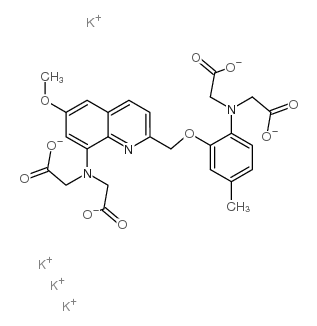| Structure | Name/CAS No. | Articles |
|---|---|---|
 |
QUIN 2, Tetrapotassium Salt
CAS:73630-23-6 |
|
 |
BAPTA tetrasodium
CAS:126824-24-6 |